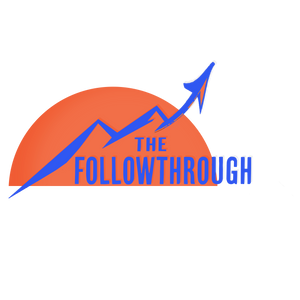Are you going to be highly successful in your career? Are you going to love your work? Will you feel a great sense of accomplishment and know that your life’s work fits hand-in-glove with your unique gifts and talents? Or, like millions of people, will you be dissatisfied at work, unhappy and unfulfilled? It is your heavenly Father’s and Big Brother’s deep desire that you reach your full potential and be prosperous—which means way more than money. (Luke 12:32, John 10:10)
A vital key to soaring through life riding the crest of up-drafts and rising winds is to carefully and thoughtfully align your career with your natural aptitudes. You will spend most of your life working, getting ready for work, commuting, and hanging up your work clothes. Spend is the operable term. You and I only have so much time, and that is one resource that is not renewable. In fact, research has shown that the stress from an ill-fitting career can actually kill you before your time. Think about this:
“For more than 20 years, Rockport Institute has gathered empirical data showing that changing from an ill-fitting career to one that is fulfilling and that produces a lower stress level reduces colds, flu and other immune system disorders. Many studies have shown this to be accurate. A compromised immune system doesn't just expose you to a higher risk of colds and flu, it lowers your resistance all across the board, making you more susceptible to catching something that will kill you.” (Rockportinstitute.com)
Conversely, those in suitable careers will be happier and healthier.
Our natural talents—aptitudes—are hardwired genetically and are discoverable by testing at about age 14. These same aptitudes will show up decades later. To know that we humans march forward from the womb to the beat of different drummers does not require rigorous research. A casual observance of elementary school recess will do.
In my class, we had kids who, from the earliest, felt comfortable telling everyone else what to do and where to go. Others always had a knack for coming up with a new game or activity if we were tired of tag or hanging upside down on the monkey bars until we lost feeling in our legs and our heads swelled like huge, sun-ripened tomatoes. Some were always by themselves, quiet, and pensive, observing everything but not participating directly. A few could follow instructions for approximately 3.7 seconds until they had to be off exploring, pushing the envelope, looking for new ways, and challenging authority. Some of us were very physical, always running, jumping, catching, throwing, and competing. Others were very verbal, gathered in various little groups chatting knowingly, tittering, and laughing. A few classmates would sit on a bench and color or look at books.
The point is that each of us is unique and special, having custom, one-of-a-kind wiring that our parents handed down to us without our permission. God gives His children gifts, physical and spiritual. (Romans 12:6) Every human being is gifted and talented but in different, beautiful ways. We no more choose our aptitudes than we do our natural hair color, eye color, or dominant hand—all controlled by DNA. It is important to understand the difference between an aptitude, a skill, and an interest.
An aptitude—sometimes called a talent or gift—refers to a natural, physical or mental ability to learn something or develop a skill with relative ease compared with someone who does not possess the same aptitude. Testing for aptitudes is helpful in predicting future development. If you and I align our interests and skills with our aptitudes, we can more easily grow and produce at a high level in all areas of life with less friction—a smooth, flowing, natural, peaceful, fun, and energizing process.
There are two huge truths about aptitude: 1. Having a gift does not guarantee you will become highly skilled—it still takes training and experience - work. 2. Not having a natural aptitude does not mean you cannot develop a related skill—it will just take more effort and, perhaps, more stress. Reaching your full potential requires intelligently marrying aptitudes with skill development through pursuing excellence.
An interest is something altogether different. We may have many interests that lie outside our aptitudes or skills. Experiences and influences may pique our curiosity and evoke an interest in something new. Having a variety of interests can make us wholesome, fascinating beings. I am susceptible to developing instant but fleeting interest in the latest thing. I remember one time not long after Mary and I were first married when we drove from Dallas down to the hill country in Southwest Texas, where her two sisters and their husbands were on a hunting trip. I developed a sudden interest in hunting. It was so keen that on the drive home, I had to stop at a large sporting goods store and purchase a Buck hunting knife that was only slightly smaller than a Bowie knife which is only slightly smaller than a medieval sword. This while knowing that if I actually tried to go on a real hunting trip, Mary, who decries hunting, would use the knife on me in my sleep and avenge Bambi’s mother.
Human beings rarely know from a very early age what they will be great at. Most of us struggle to find our niche. College students tend to change their majors a number of times before settling on a course of study. Most workers change their careers multiple times during life. How can you know your aptitudes? For most of us, it requires testing. I suggest you check out the Johnson O’Connor Research Foundation. Here is the introduction from their website at www.jocrf.org:
The Johnson O'Connor Research Foundation is a nonprofit scientific research and educational organization with two primary commitments: to study human abilities and to provide people with a knowledge of their aptitudes that will help them in making decisions about school and work.
Couple testing with career counseling and seek a rich variety of experiences. Consider interning in different jobs. Find what gives you energy and passion. Toss out what you find boring and draining. Actively seek out mentors in areas where your aptitudes, interests, and skills intersect. Make good choices and avoid getting stuck. For example, running up debt can enslave you in a job you dislike because you are under intense pressure to pay the bills.
Taking the time to find your unique niche can be a luxury you may not be able to afford.
I cannot overemphasize the need to use various strategies to discover your unique gifts early in life. But it’s never too late to make changes—it is simply more difficult the older we get. You need to make smart choices early so that when you are old, you can look back and say, “I have lived my life to the fullest; I have used my gifts completely; and I have spent myself making the world a better place—what a ride!”
2009


